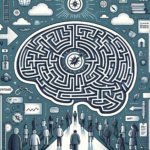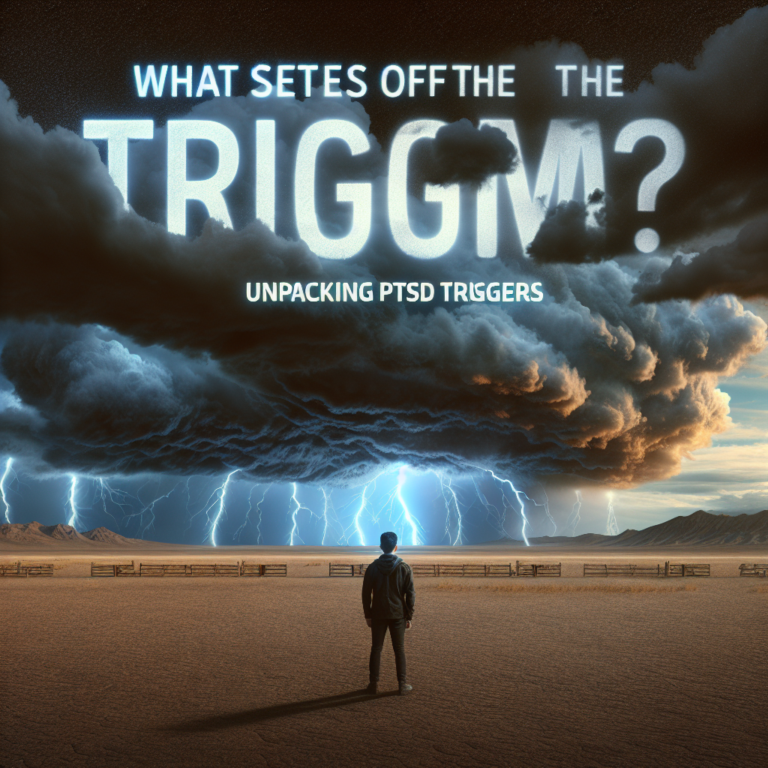
Mindful Living: Natural Techniques to Help Adults Cope with ADHD
Introduction
In a world thriving on fast-paced lifestyles and overstimulation, living with Attention Deficit Hyperactivity Disorder (ADHD) can often feel overwhelming. The struggle to focus, manage time, and maintain emotional balance can be daunting for many adults. However, there is hope. Mindful living: natural techniques to help adults cope with ADHD offers a pathway toward a more centered, fulfilling life. This article aims to explore these pivotal techniques, empowering you with tools to harness mindfulness in everyday situations.
Understanding ADHD
Before diving into the practical applications of mindful living, it is essential to understand what ADHD entails. ADHD is a neurodevelopmental disorder characterized by symptoms such as inattention, hyperactivity, and impulsivity. These symptoms can disrupt daily tasks and affect relationships, work, and overall quality of life. While medications like stimulants can be effective, many adults are seeking natural alternatives to manage their symptoms.
The Core of Mindful Living
At its essence, mindful living encourages individuals to concentrate their awareness on the present moment. Mindfulness can reduce stress and improve focus, which are crucial for adults with ADHD. By practicing mindful techniques, individuals can cultivate a greater understanding of their thoughts and feelings, leading to improved self-regulation and coping mechanisms. Let’s explore how mindful living can manifest in everyday situations to help adults cope with ADHD.
1. Mindfulness Meditation
What is Mindfulness Meditation?
Mindfulness meditation is a technique that involves focusing on the present while observing thoughts and feelings without judgment. Regular practice can enhance concentration and decrease impulsivity.
Case Study: Sarah’s Journey
Sarah, a 34-year-old marketing executive, struggled with time management at work. After integrating mindfulness meditation into her daily routine, she began to notice significant improvements. By dedicating just ten minutes each morning to meditation, Sarah found herself more focused and less anxious throughout the day.
Analysis: Sarah’s experience illustrates how even brief moments of mindfulness can enhance concentration, particularly for individuals facing challenges with attention.
How to Get Started
- Find a Quiet Space: Choose a distraction-free environment.
- Set a Timer: Start with 5–10 minutes.
- Focus on Your Breath: Pay attention to your breathing, and gently bring your mind back when it wanders.
2. Mindful Eating
The Benefits of Mindful Eating
Mindful eating encourages individuals to pay attention to their food choices, portion sizes, and eating habits. This technique fosters better nutrition and self-discipline.
Case Study: James’s Transformation
James, a 40-year-old chef with ADHD, noticed that his eating habits contributed to his high energy levels but low productivity. By adopting mindful eating techniques, he became more aware of his body’s hunger signals. James began savoring each meal, which allowed him to make healthier choices, positively impacting his focus during work hours.
Analysis: James’s transformation highlights the relationship between nutrition and attention, showcasing the power of mindfulness in fostering healthier eating behaviors.
Tips for Mindful Eating
- Eliminate Distractions: Turn off screens and focus solely on your meal.
- Savor Each Bite: Take your time to appreciate the flavors and textures.
- Listen to Your Body: Pay attention to when you feel full.
3. Grounding Techniques
What Are Grounding Techniques?
Grounding techniques help individuals reconnect with the present, especially during moments of anxiety or overwhelm. These techniques can be particularly beneficial for adults with ADHD who experience overwhelming emotions.
Case Study: Laura’s Grounding Practice
Laura, a 29-year-old teacher, often felt anxious during meetings. She began using the 5-4-3-2-1 grounding technique, which involves identifying five things she can see, four things she can touch, three things she can hear, two things she can smell, and one thing she can taste. This practice calmed her nerves, enabling her to participate more actively in discussions.
Analysis: Laura’s experience demonstrates how grounding techniques can minimize anxiety and improve focus, showing that they are effective tools for adults with ADHD.
Implementing Grounding Techniques
- Take a Deep Breath: Inhale deeply and exhale slowly.
- Use Your Senses: Engage with your surroundings to bring yourself to the present.
- Practice Awareness: Recognize your thoughts without judgment.
4. Nature Therapy
The Power of Nature
Research suggests that spending time in nature can significantly reduce stress and improve attention. Nature therapy involves engaging with the natural environment to benefit mental health.
Case Study: Tom’s Outdoor Routine
Tom, a 37-year-old software developer, often found himself distracted while working from home. He started taking daily walks in a nearby park during lunch. This simple change not only reinvigorated his energy but also helped him refocus for the afternoon.
Analysis: Tom’s routine illustrates how even short interactions with nature can enhance focus and reduce the symptoms of ADHD.
Tips for Nature Therapy
- Make It Routine: Schedule regular time outdoors.
- Engage Fully: Leave your phone behind and immerse yourself in the environment.
- Explore Variety: Try different settings, from parks to nature trails.
5. Mindful Movement
Understanding Mindful Movement
Mindful movement incorporates physical activity with a focus on body awareness. This can include yoga, tai chi, or even walking with intention. These practices can alleviate ADHD symptoms by promoting physical health while enhancing mental clarity.
Case Study: Jenna’s Yoga Journey
Jenna, a 45-year-old accountant, had seen limited success with traditional methods of managing her ADHD. On a friend’s recommendation, she tried yoga. The combination of movement and mindfulness transformed her experience. Jenna found that the practice improved her focus, and she felt more at ease in her day-to-day life.
Analysis: Jenna’s story demonstrates how incorporating mindful movement can evoke calm and clarity, affirming its role as an effective technique for adults with ADHD.
Starting Mindful Movement
- Choose Your Activity: Explore yoga, dance, or tai chi.
- Focus on Breathing: Synchronize your breath with movements for a deeper connection.
- Stay Present: Concentrate on your body’s sensations and movements.
Table: Summary of Mindful Living Techniques for ADHD
| Mindfulness Technique | Benefits | Tips to Implement |
|---|---|---|
| Mindfulness Meditation | Improved focus, reduced anxiety | Start with short sessions, breathe deeply |
| Mindful Eating | Better nutrition, self-discipline | Eliminate distractions, savor meals |
| Grounding Techniques | Decreased anxiety, increased presence | Use sensory engagement techniques |
| Nature Therapy | Reduced stress, enhanced focus | Schedule outdoor time regularly |
| Mindful Movement | Physical health, mental clarity | Choose enjoyable physical activities |
Conclusion
Mindful living: natural techniques to help adults cope with ADHD offer practical solutions for those seeking relief from the challenging symptoms of ADHD. By incorporating practices such as meditation, mindful eating, grounding techniques, nature therapy, and mindful movement, adults can experience improved focus, emotional balance, and a greater sense of well-being.
Ultimately, it’s crucial to remember that mindfulness is a journey. Small, consistent changes can lead to significant improvements over time. Take the first step today and explore the transformative power of mindful living for yourself.
FAQs
1. Can mindful living really help with ADHD symptoms?
Yes, many adults with ADHD report that mindful living techniques help them manage symptoms more effectively. Mindfulness promotes focus, reduces anxiety, and enhances self-awareness.
2. How long does it take to see results from mindfulness practices?
Results can vary depending on the individual and the techniques used. Some may notice improvements in focus and mood after a few weeks of consistent practice.
3. Do I need to be an expert in mindfulness to start?
No expertise is necessary! Mindfulness is about intention and practice. Start with small steps, and gradually incorporate more techniques into your life.
4. Is mindfulness a replacement for medication?
While mindfulness can be a helpful complement to traditional treatments, it should not replace prescribed medications unless advised by a healthcare professional.
5. What if I find it hard to focus during mindfulness exercises?
It’s completely normal to experience distractions during mindfulness exercises. Gently acknowledge wandering thoughts and bring your attention back to the present moment without judgment.
By understanding the positive impacts of mindful living and the natural techniques to help adults cope with ADHD, you can begin to create a life that is not only manageable but enjoyable. Embrace the journey of mindfulness, and watch as you cultivate a greater sense of peace and clarity in your days.

















